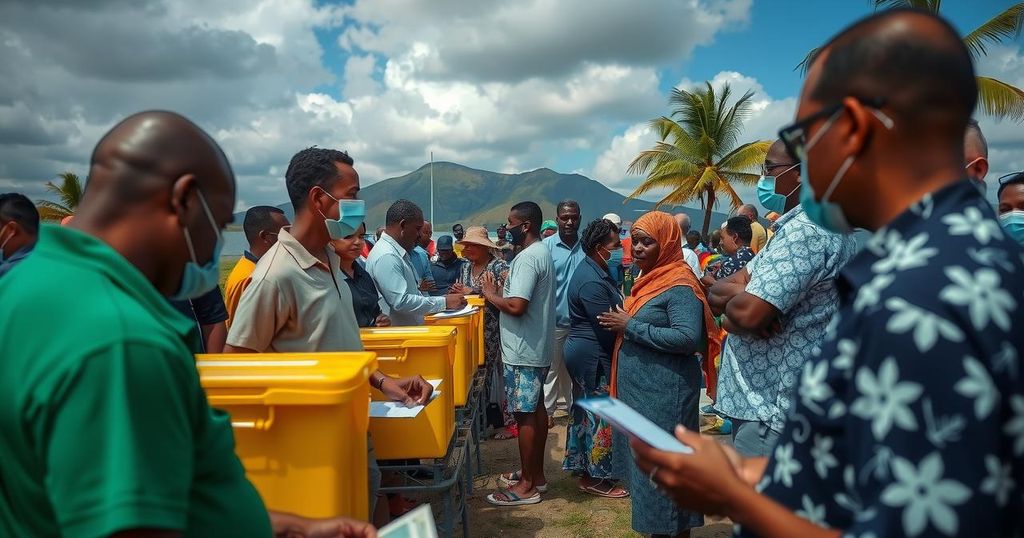Mauritius Election Amid Scandal and Promises of Stability

Mauritius conducted parliamentary elections influenced by a phone-tapping scandal and a recent sovereignty agreement over the Chagos Islands. Prime Minister Pravind Jugnauth faced challenges from Navin Ramgoolam’s opposition party. With a reported 70% voter turnout, concerns regarding governance and corruption have also emerged, highlighting the need for reform in the nation’s political landscape.
Mauritius recently held a parliamentary election amid a controversial backdrop involving leaked phone conversations of prominent politicians, diplomats, and journalists. The election took place shortly after a significant agreement wherein the United Kingdom transferred sovereignty over the Chagos Islands to Mauritius, a development that was expected to bolster the re-election prospects of Prime Minister Pravind Jugnauth. Despite this historic victory, the political climate was marred by a scandal involving phone tapping, leading to the government’s attempt to enforce a ban on social media, which was reversed following public outcry. The electoral battle primarily unfolded between Jugnauth’s Militant Socialist Movement and the opposition Alliance of Change, led by former Prime Minister Navin Ramgoolam. Each party aimed to address economic concerns and reduce the cost of living to gain voter support. On the election day, security measures were heightened, with police present at polling stations and observers from various regional organizations ensuring the integrity of the process. By the time polls closed, a turnout of 70 percent was reported, though this figure lacked a comparative context from the previous election in 2019. The results were anticipated to be released on the following day. Amidst these elections, concerns regarding the governance and stability of Mauritius persist, especially given increasing corruption and the erosion of democratic institutions over recent years. Criticism has been leveled at the current government for failing to uphold checks and balances, leading to a decline in Mauritius’s ranking in governance indices. The political landscape remains dominated by a few familial lineages with a new opposition movement emerging to challenge the status quo, advocating for better governance practices. The potential repercussions of the naval presence of the United States, under a new administration, on Mauritius’s sovereignty were also noted as an important consideration going forward.
The political situation in Mauritius is characterized by a long-standing stability and growth trajectory since gaining independence from British rule in 1968. The economy thrives on tourism, textile manufacturing, and financial services, contributing to a GDP growth rate of 7% in 2023. However, recent allegations of increased corruption and governance failures have led to rising concerns regarding the erosion of civil liberties and the functioning of democratic institutions.
In conclusion, the parliamentary elections in Mauritius reflect a complex interplay of political ambitions, recent historical agreements, and underlying issues of governance. While the electoral proceedings were largely peaceful, the overarching concerns regarding corruption and institutional integrity continue to loom large, complicating the nation’s pursuit of economic and political stability.
Original Source: www.guampdn.com







